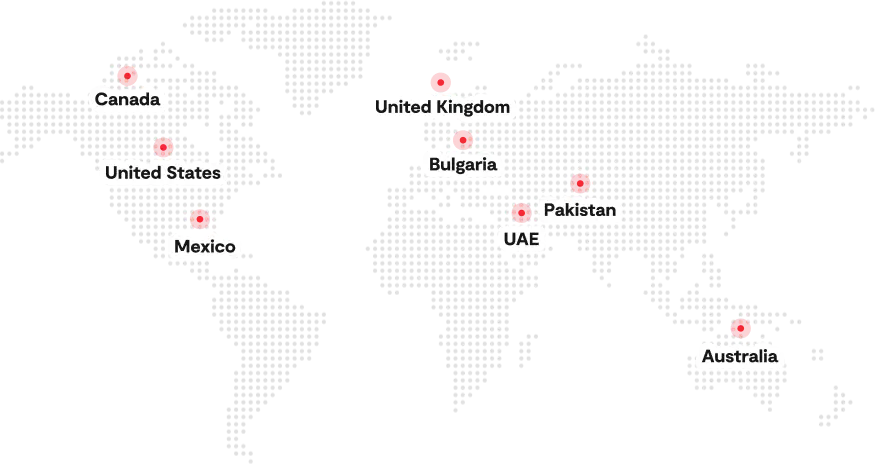Digital Food Safety Assessments Tools
The primary aim of every government is to ensure that the food produced in the country is produced hygienically so that it is safe for public consumption. After air and water, food is the most urgent and basic need of every human being and hence, having access to clean and hygienic food is a fundamental right, not a privilege.
National food control agencies ensure fair practices regarding food development authorities and companies in order to free the food from any possible contamination and foodborne diseases. Therefore, FAO and WHO have developed Food Control System and Food Safety (FSA Tools) Assessment Tools to help governments evaluate the performance of their food production systems.
A Food Safety Assessment (FSA) is an audit done by FSIS at federally inspected plants to assure that food safety procedures are effective. It is either done randomly or in response to a certain problem. Its basic goal is to “reduce recalls and enforcement actions by providing valuable information to plants about their food safety systems.”
What are Food Safety Assessment Tools?
Food safety assessment tools (FSA Tools) refer to the major modern tools available to regulatory agencies for use in developing food safety criteria and standards. They provide a scientific basis for improving public health and addressing emerging foodborne diseases.
Click here to learn how we digitized 300+ FSIS Review forms for a leading Processing Plant.
These tools look into and analyze each and every step of a food production chain to make sure no corruption of any kind is involved and the food produced will not threaten public health.
Benefits of Digitizing FSA Tools
When it comes to food hygiene and safety, food safety assessment tools are no less than a blessing; that make the entire process of food inspection not only easy but efficient as well.
‘57% of office workers spend one hour per day searching for documents, which is a significant amount of wasted time; and this does not even include the time required to print any paperwork.’ – Developing People Globally
Therefore, in order to survive in today’s digital era, digitizing FSA tools is rather inevitable as it takes a food business to an entirely new level of successful production, especially if the company relies on efficient and streamlined document storage and sharing. Digitizing has a bunch of benefits. Some of these are listed below,
- Reduces compliance costs
- Reduces recalls
- Boosts profits
- Enhances reputation
- Helps you prioritize customers and avoid any risk of foodborne illnesses.
- Improves food quality
- Makes you compliant with government food safety regulations
- Increases efficiency and motivation in employees
- Helps you organize your processes efficiently
Paper-Based vs Automated Digital Tools – How It Will Help FSIS Officers
Let’s look at some of the most relevant benefits of automated digital tools to consider when you’re thinking about making the switch to digitization.
Increased operational efficiency
| Paper Based | Digital Tools |
| Double data entry, manual data checks, and management, printing, distributing, and returning paper forms make manual data entry complicated. | With just a few clicks, users will be able to find the documents they need without many complications. |
Standardization of inspection checklists
| Paper Based | Digital Tools |
| Quality control checklists are difficult to manage and record. | With just a few clicks, users will be able to find the documents they need without many complications.
Digitized quality control checklists are a great tool for quality control at every stage of the production process. |
Real-time data
Real-time data enables organizations to understand what’s happening in real-time and provide accurate and timely advice.
| Paper Based | Digital Tools |
| No access to real-time data, which it makes it difficult for businesses to attain success. | One can get real-time data to improve operational processes. |
Better data access
| Paper Based | Digital Tools |
| Re-entering data from paper forms can take hours or even days.
Information is not available straight away |
Data is available in real time and can be accessed by FSIS officers right away.
Data is available 24/7 and can be retrieved using a tablet or smartphone. |
Better integration
| Paper Based | Digital Tools |
| One will need to take extra steps to get the information one needs.
Very time-consuming. Very difficult to have access to all available data all at once. This results in decreased communication within a company due to lack of information and records available. |
A digital solution can integrate all other systems, exchanging data, tasks, and insights.
Can help save time by providing access to all sorts of data in one place Provides greater visibility and insights into all business operations. Help make faster and more informed decisions. |
Improved collaboration
| Paper Based | Digital Tools |
| Lesser collaboration between employees and stakeholders due to time-consuming ways of communication.
This lack of communication may lead to compromises on the check and balance system maintaining the set quality standards within a company. |
Digital tools can improve existing processes, generating new workflows and new efficiencies. |
Lower costs
| Paper Based | Digital Tools |
| Paper document management and archiving can be both intensive and expensive.
High need for physical storage space. |
Time-saving and lesser chances of human error.
Lower time spent resulting in lower costs. Less or no physical space is required. |
Improved security
| Paper Based | Digital Tools |
| Keeping sensitive data safe is extremely challenging. | Electronic document management can help improve information security.
Rules are set on the basis of criteria that ensure that only the right people have access to the relevant information. |
Better traceability and accountability
| Paper Based | Digital Tools |
| Less control over who has access to even the most sensitive information. | Provide complete control over how (and by whom) the data is collected.
Digital solutions provide control audit trails, user access rights, and data security. Trails are easily accessible so that one can quickly know who filled out, viewed, or changed files, and when they did it. |
More reliable backups
| Paper Based | Digital Tools |
| Traditional document management practices encourage the saving of documents on local computers and non-controlled file shares, which means that data may not be properly backed up. | EDMS centralizes all documents and records in one location, which significantly improves the ability to properly back up relevant data. |
To facilitate the public, food control agencies ensure to pass food that is free from contamination at any production & processing facility. This can only be achieved by the use of digital technologies that are developed in the sector. Companies like Folio3 AgTech are preferred by the AgTech industry experts and regulatory bodies as they deliver industry-specific software solutions that not only digitize the processes from farm to fork but also ensure complete traceability at all levels.
With digital tools in the palm of the hand, not only the feedlots, processing companies, agtech industry associations and relevant businesses would be benefitting from it, but also it would be very convenient for regulatory authorities to conduct food safety and quality control assessments easily.








